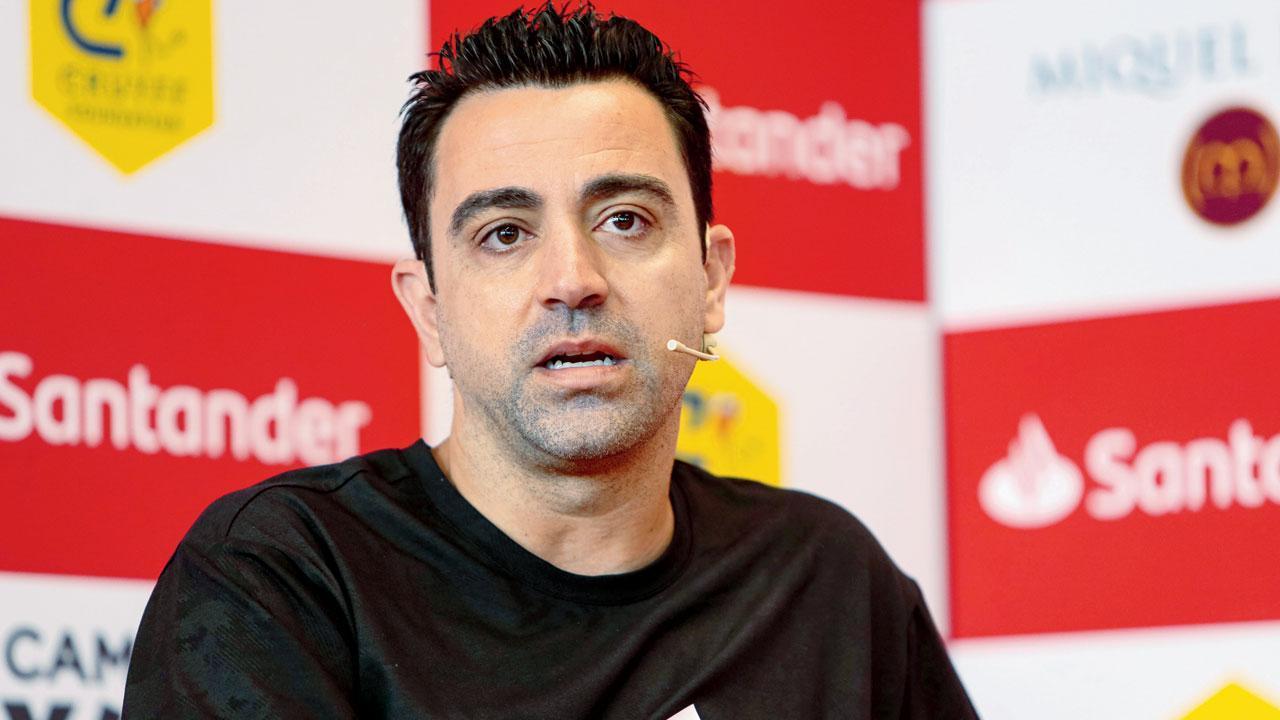
In a dramatic turn of events that has sent shockwaves through the world of football, FC Barcelona has decided to part ways with head coach Xavi Hernandez. The announcement came on Friday, just weeks after Xavi and club president Joan Laporta had mutually agreed on his continued tenure at the club. This decision follows a disappointing season for the Catalan giants, who have failed to secure any silverware, leaving fans and analysts speculating about the future direction of the club.
Xavi, a legendary figure at Barcelona both as a player and a coach, will manage the team one final time when they face Sevilla in their concluding La Liga match on Sunday. The significance of this match has now been heightened, as it will mark the end of an era for both Xavi and the club. The decision to sack him has been met with mixed reactions, underscoring the immense pressures and expectations that come with managing one of the world’s most storied football clubs.
The problems for Barcelona this season began early, as the team struggled to find consistency in their performance. Despite the talent at Xavi’s disposal, injuries, underperforming stars, and tactical missteps combined to create a forgettable campaign. Barca’s failure to advance in critical tournaments only compounded the disappointment, eroding both confidence and patience among the club’s hierarchy.
Joan Laporta, who had been a staunch supporter of Xavi’s vision and approach, was left with no choice but to make this tough decision. “It is with a heavy heart that we part ways with Xavi,” Laporta stated in a brief press conference. “His commitment and dedication to the club have been unparalleled, but the expectations at Barcelona are enormous, and we must strive for excellence in every season.”
Xavi’s departure marks a significant shift for Barcelona, a club that has long been synonymous with elegance, success, and a unique style of play often referred to as ‘tiki-taka.’ As a player, Xavi was the epitome of this philosophy, orchestrating Barcelona’s midfield with precision and intelligence. His transition to a managerial role had been seen as a natural progression, an attempt to infuse that same philosophy into a new generation of players. However, the realities of modern football and the changing dynamics within the squad proved to be formidable challenges.
Many within the football community have expressed sympathy for Xavi, acknowledging the difficulties he faced. Managing a club of Barcelona’s stature comes with relentless scrutiny and lofty ambitions.
. The reduced financial clout of Barcelona, combined with a squad in transition, only made the task more Herculean. Xavi’s exit, while disappointing, serves as a reminder of the brutal nature of top-tier football management.
As for the immediate future, speculation is rampant regarding who will take the helm at Camp Nou. Several high-profile names have emerged as potential candidates, each bringing their unique credentials and strategies to the table. Whoever steps into the role will inherit a team that is talented but in need of rejuvenation and strategic clarity.
From a tactical standpoint, the next manager will need to address several key areas where Barcelona has faltered this season. The defense has often appeared shaky, the midfield lacked the dynamism and creativity that once defined the club, and the attack, led by an aging Lionel Messi, struggled to break down organized defenses. Integrating promising young talents with experienced stalwarts will be a critical challenge for the incoming manager.
Beyond the tactical aspects, the psychological and cultural dimensions cannot be overlooked. Barcelona’s identity is intimately tied to a sense of pride, passion, and a commitment to beautiful football. Rebuilding this ethos will require not just strategic acumen but also a rekindling of the club’s spirit and a reconnection with its fanbase, who have grown increasingly restless and disillusioned.
As Xavi prepares to take charge of his final match, the atmosphere is expected to be emotionally charged. Fans will undoubtedly express their appreciation for a man who has given so much to the club, even if his managerial stint did not yield the desired results. The match against Sevilla, once a routine fixture, now carries symbolic weight, offering a bittersweet farewell to one of Barcelona’s true icons.
In conclusion, while the decision to sack Xavi Hernandez is a stark reminder of the high stakes in football management, it also opens the door for a new chapter in Barcelona’s illustrious history. The club’s leadership now faces the formidable task of selecting a new manager who can navigate the complexities of modern football while honoring the rich traditions of FC Barcelona. As the dust settles, one thing remains clear: the journey ahead for Barcelona promises to be as challenging as it is intriguing.










